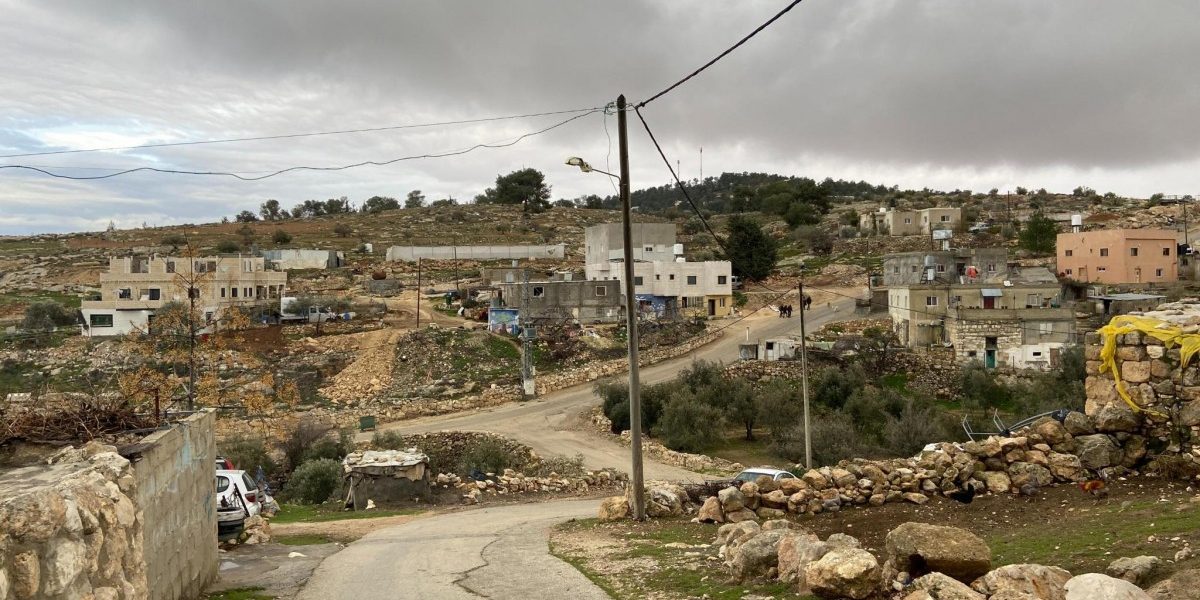It is the first week of war, and I have been staying at my friend’s house in the Tel Aviv area. Every time there is a siren, we hurriedly grab our bag and go down three flights of stairs to the basement, where there is a bomb shelter. The bag has our IDs, keys to the house and water in case the building collapses and we are trapped in the shelter. We keep it by the door so as to not waste any time on our way down. As we go down we always pass by the old couple living on the floor below. They rush too, but are only able to descend slowly.
Many more rockets are fired from Gaza towards the Tel Aviv region as compared to Jerusalem. People say that it is probably because firing rockets towards Jerusalem is too risky – what if the rocket hit the Old City in Jerusalem, which is of utmost importance in Judaism, Islam and Christianity? What if Hamas accidentally hit Al Aqsa mosque, one of the holiest sites in Islam which the organisation claims to be trying to protect from Israeli incursions?

Soldiers on a religious-archeological tour in the occupied East Jerusalem.
The Iron Dome works very well – most often leaving us with only the shudder of a loud boom in the sky. But when the number of rockets being shot is so high, some escape interception. A rocket landed recently in southern Tel Aviv, causing significant destruction and casualties. A few friends who live there posted pictures on social media of the aftermath. They are okay, but I am in shock that they were not too far from death.
In Israeli territory close to Gaza, the destruction from these rockets has been truly massive. Israelis living there only get a few seconds to run to the closest shelter after the siren blares. In the Tel Aviv area, we get around a minute and a half.
What would put an end to this horror? What would ensure that human life is not wasted like this? The Israeli government, and the self-described civilised nations states of the West, have a solution. It involves dropping bombs from the sky on a thin strip of land with 2.3 million people walled-in from all sides, barring them from access to water and electricity. Hamas is evil, and this is how you destroy evil to make the world a better place.
There is a long text message from our friend Khalil from Gaza:
Our house, where I and my family live, has been totally destroyed by Israeli F16s, made in America.
It is the place of my memories with my late father. I am extremely sad and feel pain deep inside my heart. Tears don’t stop dropping off my eyes. I can feel my heart burning. I can feel my soul being suffocated by this. I want to scream to wake the world up.
Now, if we survive, we will be homeless. But I am sure that the hearts of my beloved friends will always be a shelter that can never be destroyed.
It is important for me to say that this will never affect my enthusiasm for a better world for all people without discrimination. I don’t want this to happen to any person.
Your friend
Khalil
The Israeli defence minister also has a message for everyone:
When a rocket from Gaza is intercepted by the Iron Dome system, I can hear a loud explosion coming from the sky. The buildings shudder.
I hear a sound and look at my friend. “It is thunder,” she says. Only now do I notice that the sky is so cloudy; I have been too preoccupied with reading the news and my thoughts. The sounds of aircrafts and ambulances, and police sirens have also become startling. “What was that?” we ask each other frequently.
A woman on the other side of the shelter seems to be having a panic attack. I hear that PTSD is common within Israeli society. Many have traumatising experiences during their mandatory military service. Military service appears to be one of the core parts of being “Israeli”; friends tell me that when strangers meet they often try to find mutual connections by referring to the time they served in the military. They say that a job applicant who did not serve could be perceived negatively by employers.

The map of Hebron created by B’Tselem showing the architecture of Israeli apartheid.
The Israeli death toll is still rising. Nobody that I know personally has been physically hurt, but almost all my Israeli friends know someone who died or is missing. It is a small country; everyone seems to know everyone.
My friend’s mother is describing how yesterday she went to a funeral of someone who died in the Hamas attack. The siren sounded when she was driving back home, and she stopped her car in the middle of the road and frantically searched for a shelter. She found a building to stay in, but not a shelter.
The large-screen TV in the living room is showing visuals from the Hamas attack and statements from Israeli officials. The necessity to “flatten”, “destroy” and “erase” Gaza is the mainstream discourse. “Can we turn this off?” my friend asks. “I haven’t been able to do anything but watch the news. It is hard to focus on anything else,” her mother says. She has turned off the TV.
I see on my phone that a former board member of the leading human rights NGO B’Tselem, Vivian Silver, is missing since the Hamas attack on October 7. Another Israeli peace activist, Hayim Katsman, was killed the same day. I did not know him but my friends did, and everyone is in shock. In interviews with journalists, Hayim’s sibling Noy said to not “use our death and our pain to bring the death and pain to other people and other families”.
Such views are marginal. Joe Biden just gave a speech and according to political commentators, Israelis love it. He said that if the United States was experiencing what Israel is experiencing, “our response will be swift, decisive, and overwhelming.” Like after September 11, 2001? When two decades of death and misery brought by the US response – the so-called “War on Terror” – concluded with the Taliban regaining power in Afghanistan?
This group consists mainly of Jewish peace activists, many of whom I know and have become friends with. The messages are describing that the Israeli military took Issa to an unknown location and nobody has been able to reach him for hours. People are sending worried texts, “What should we do?”
Phone numbers of military offices are shared so that activists could call and ask for Issa’s whereabouts. Someone calls a number and reports on the group: the military official said that they do not have time to entertain these requests during wartime. Of course dissent and human rights will be trampled using the pretext of war and a state of emergency. What else could one expect? This is what happened in the United States after the September 11 attacks, and it happens everywhere.
More messages: the Palestinian villages in the West Bank where Jewish activists do solidarity work are all under siege. Entrances to many Palestinian villages have been blocked, and it is unclear whether it was done by the military or settlers. These communities are unable to leave the village for work or to buy daily necessities. Settlers with guns are attacking villages.
“It is really bad here,” texts another Palestinian. As the attention shifts to the Israel-Hamas war, the situation in the West Bank is getting worse.The death toll in Gaza is rising rapidly, and at this rate, it will cross the Israeli casualties in the coming days. Sometimes we can hear explosions but there are no sirens. Where was the explosion, then? My friend’s mother thinks that it’s the sound of the bombs that are being dropped in Gaza – reaching us all the way here, in Central Israel. I do not know if that is possible, but it is a heart-wrenching thought.
Kajal Agarwal


















































